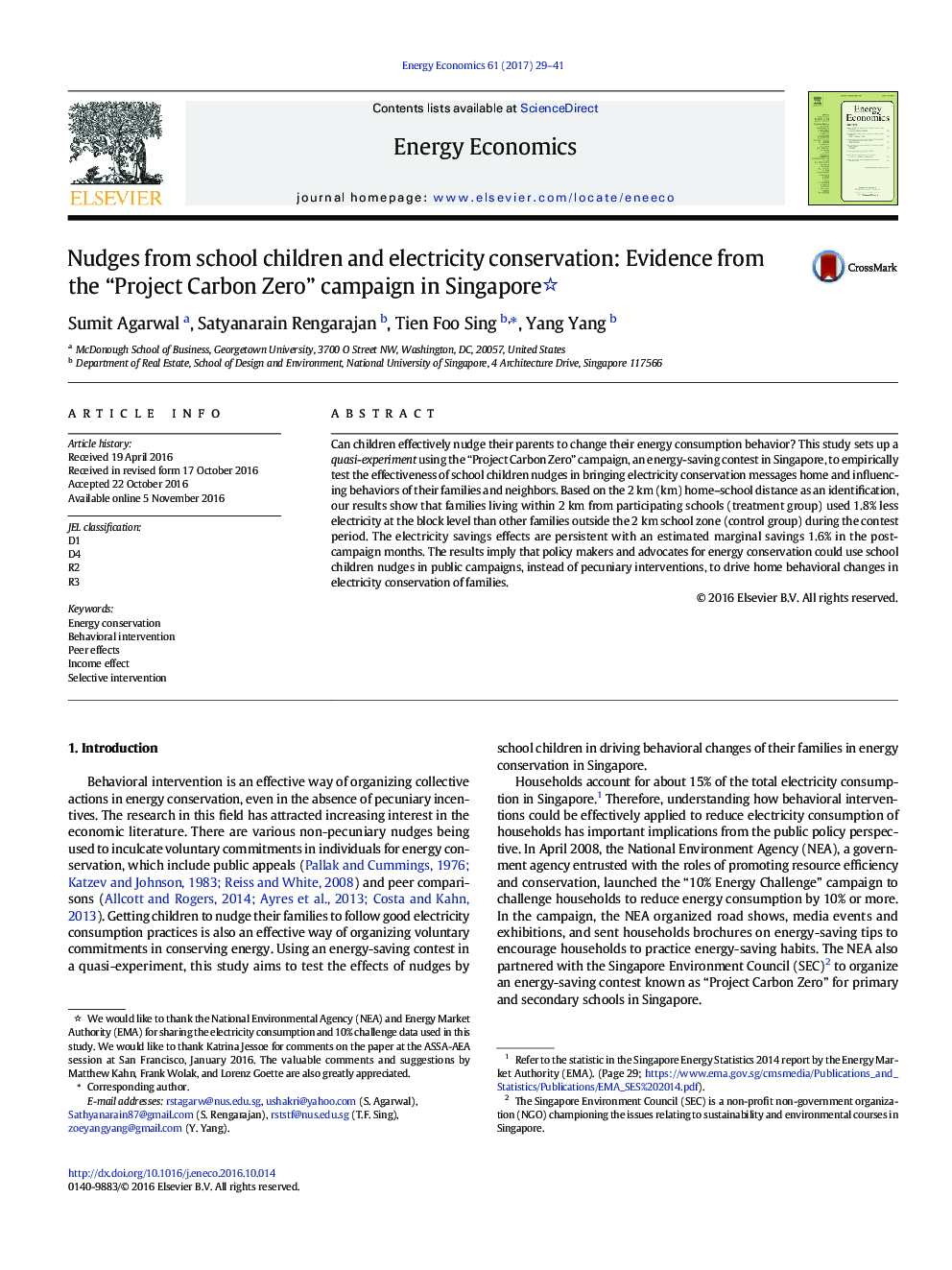| کد مقاله | کد نشریه | سال انتشار | مقاله انگلیسی | نسخه تمام متن |
|---|---|---|---|---|
| 5063850 | 1476703 | 2017 | 13 صفحه PDF | دانلود رایگان |

- Getting children to nudge families to emulate good electricity consumption practices is an alternative way of organizing voluntary commitments toward conserving energy.
- The “Project Carbon Zero” campaign was organized in Singapore to encourage school children to reduce energy consumption by 10% or more.
- This study tests the effects of nudges by school children in driving behavioral changes in energy conservation in Singapore.
- Based on the 2 km home-school distance as an identification, our results show that families living within 2 km from participating schools used 1.8% less electricity at the block level than other families living outside the 2 km school zone during the contest period.
- The electricity savings effects persisted into the post-contest months with estimated marginal savings of 1.6%.
Can children effectively nudge their parents to change their energy consumption behavior? This study sets up a quasi-experiment using the “Project Carbon Zero” campaign, an energy-saving contest in Singapore, to empirically test the effectiveness of school children nudges in bringing electricity conservation messages home and influencing behaviors of their families and neighbors. Based on the 2Â km (km) home-school distance as an identification, our results show that families living within 2Â km from participating schools (treatment group) used 1.8% less electricity at the block level than other families outside the 2Â km school zone (control group) during the contest period. The electricity savings effects are persistent with an estimated marginal savings 1.6% in the post-campaign months. The results imply that policy makers and advocates for energy conservation could use school children nudges in public campaigns, instead of pecuniary interventions, to drive home behavioral changes in electricity conservation of families.
Journal: Energy Economics - Volume 61, January 2017, Pages 29-41